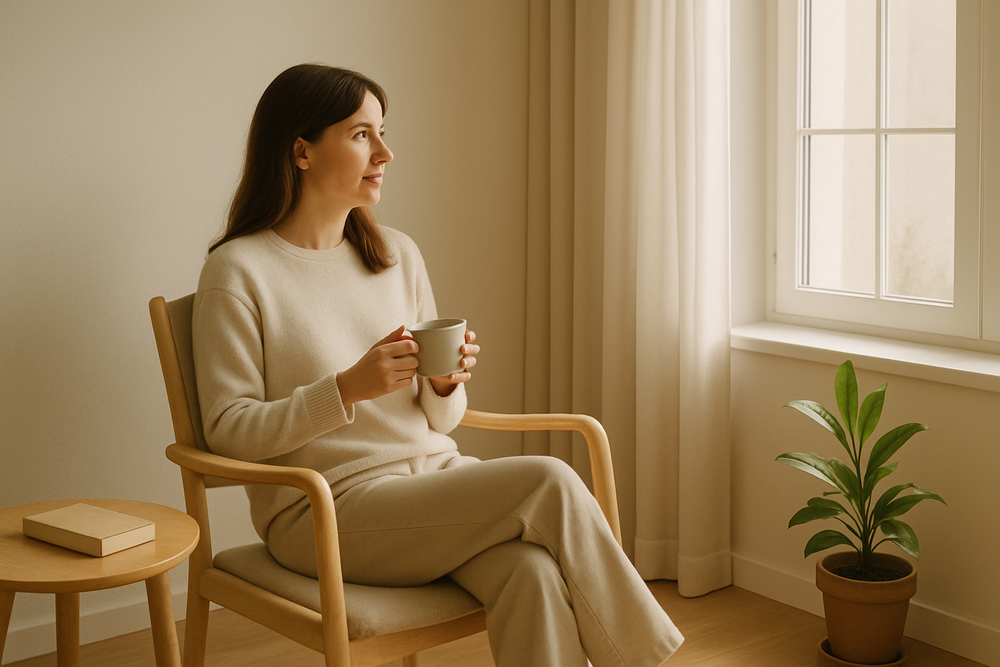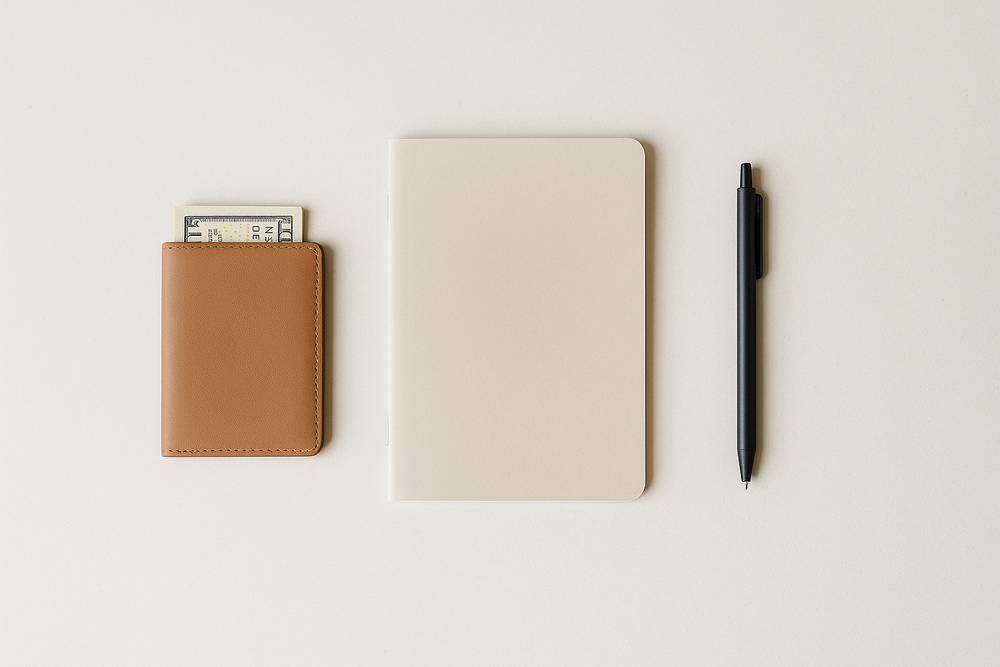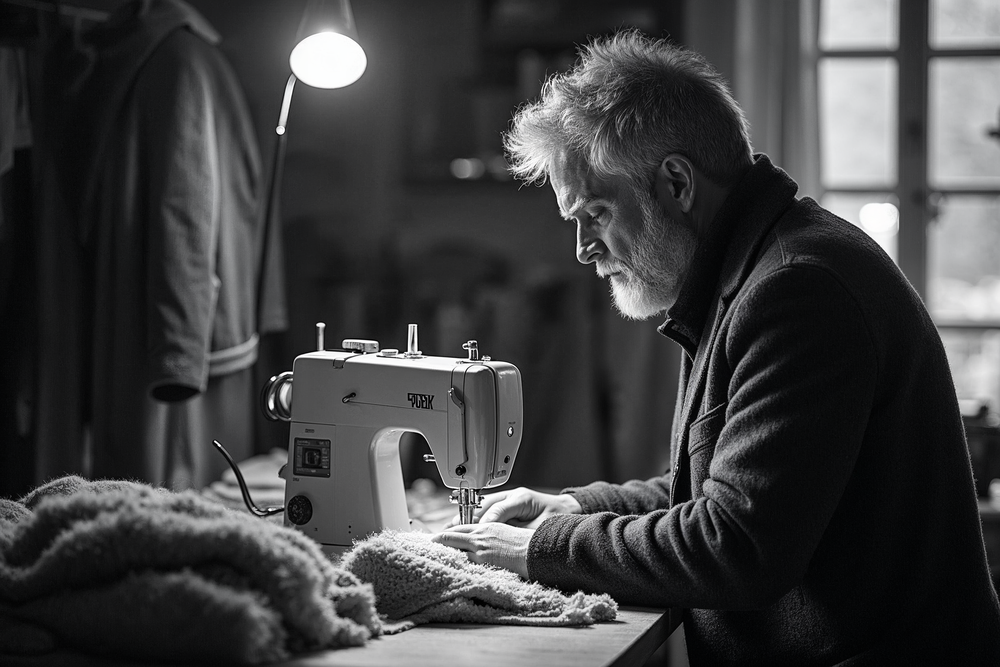Minimalism 2.0: Living Better With Less (But Smarter)
Aiden Reese
2025-09-27
6 min read

In recent years, minimalism has shifted from a niche lifestyle choice to a mainstream philosophy. But today, minimalism isn’t just about owning fewer things—it’s about living smarter with less. Welcome to Minimalism 2.0, where intention and efficiency replace mere decluttering. It’s a practical approach for modern life, helping people save money, reduce stress, and reclaim their time.
The Evolution of Minimalism
Traditional minimalism often emphasizes stark, empty spaces and extreme reduction of possessions. While that works for some, it isn’t sustainable for everyone. Minimalism 2.0, however, recognizes that our needs have evolved. We live in a world saturated with digital distractions, endless subscriptions, and constant consumer pressure. Instead of simply cutting items, Minimalism 2.0 focuses on thoughtful choices—keeping what truly adds value and eliminating what doesn’t. It’s not about deprivation; it’s about optimization. For example, instead of discarding all your clothes, you might build a versatile capsule wardrobe that simplifies decision-making while still reflecting your style. Instead of banning gadgets, you learn to use technology intentionally—like scheduling screen-free times or consolidating apps to avoid digital clutter.
Minimalism Meets Technology
A key feature of Minimalism 2.0 is integrating smart solutions. Modern minimalists leverage technology to streamline daily life. Cloud storage replaces endless filing cabinets, smart home devices automate mundane tasks, and budgeting apps track spending to prevent overbuying. Minimalism 2.0 isn’t anti-technology—it’s pro-intentional technology use. The goal is to reduce mental clutter, not replace it with another form of overwhelm. Digital minimalism, a growing branch of this philosophy, encourages curating your online presence. Unsubscribe from emails that don’t matter, declutter your social media feeds, and focus on digital tools that genuinely improve your life. This approach allows more focus on meaningful relationships and experiences rather than constant online consumption.
The Environmental Edge
Minimalism 2.0 is also eco-conscious. By choosing quality over quantity and investing in durable items, you reduce waste and lessen your environmental impact. It’s about smarter consumption: selecting products that last longer, serve multiple purposes, or are ethically produced. This shift aligns personal well-being with broader planetary benefits, proving that living smarter with less doesn’t just help you—it helps the world.

Mindful Spending and Financial Freedom
A smarter minimalist approach naturally supports better finances. By prioritizing needs over wants, you reduce impulse purchases and build savings. Many practitioners of Minimalism 2.0 focus on experiences instead of objects. Instead of spending on fleeting trends, they invest in travel, education, or hobbies that enrich life long-term. This conscious spending reduces stress, increases satisfaction, and allows for more freedom in career and lifestyle choices.
Time and Mental Clarity
One of the most overlooked benefits of Minimalism 2.0 is mental clarity. Our modern environment bombards us with stimuli—advertisements, notifications, meetings, and obligations. Reducing physical and digital clutter frees up mental space for creative thinking, problem-solving, and meaningful connections. By simplifying surroundings and habits, minimalists can focus on what truly matters, whether that’s personal growth, family, or pursuing passions.
How to Adopt Minimalism 2.0
Audit Your Belongings: Ask yourself which items serve a purpose or bring joy. Keep only what truly matters.
Streamline Digital Life: Declutter devices, limit notifications, and remove apps that distract rather than support goals.
Invest Wisely: Prioritize quality over quantity in purchases, focusing on durability and long-term value.
Simplify Your Schedule: Minimize obligations that don’t align with your priorities. Free time is just as valuable as money.
Focus on Experiences: Replace material accumulation with experiences that enrich your life and create memories.
Minimalism 2.0 isn’t about perfection—it’s about intention. It’s about crafting a lifestyle where possessions, technology, and obligations serve you, not the other way around. By living smarter with less, you free resources—time, money, mental energy—to invest in what truly makes life meaningful. In essence, Minimalism 2.0 is a modern answer to an age-old desire: to live fully, not cluttered. It’s about understanding that less can be more, but only if less is intentional. By embracing this approach, we can navigate today’s fast-paced, high-pressure world with clarity, purpose, and freedom.



